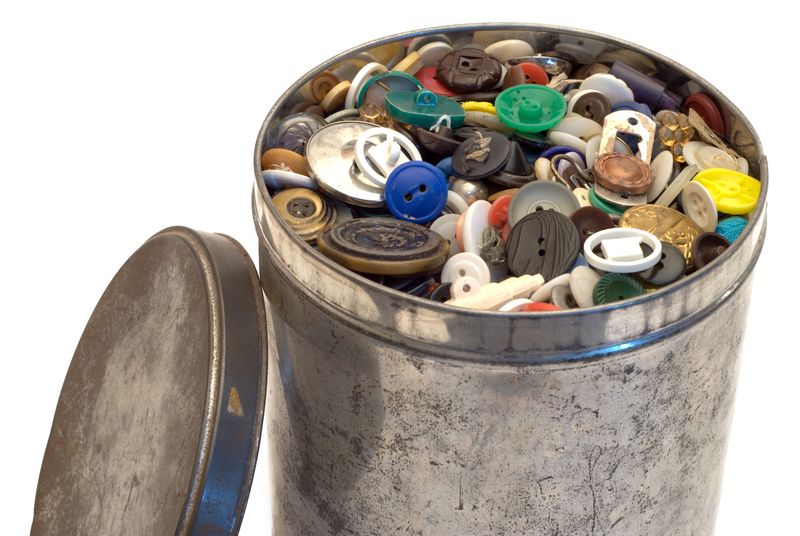How Metal Recycling Benefits Local Communities and Job Creation
Metal recycling is more than just a process; it's an industry that catalyzes environmental sustainability and provides concrete economic benefits. Below, we explore how metal recycling fosters community growth, supports local economies, and creates numerous employment opportunities.
The Environmental Importance of Metal Recycling
Before delving into the socioeconomic benefits, it's crucial to understand the environmental impact of metal recycling. Recycling metals significantly reduces the need for mining, which is typically detrimental to the environment. By conserving natural resources and reducing pollution, metal recycling supports a healthier planet, which in turn benefits local communities.
Reducing Energy Consumption
One of the primary environmental benefits of metal recycling is the reduction in energy consumption. Recycling metals such as aluminum, copper, and steel require significantly less energy than mining and processing virgin material.
- Aluminum: Recycling aluminum saves up to 95% of the energy required to produce new aluminum from bauxite ore.
- Steel: Recycling steel saves about 60% of the energy compared to producing it from new material.
By conserving energy, communities can reduce their carbon footprint, which contributes to overall climate change mitigation efforts.

The Economic Benefits to Local Communities
Alongside environmental advantages, metal recycling plays a vital role in boosting local economies. By keeping the metal recycling process within a community, residents can benefit from local facilities and services.
Increased Local Revenue
Recycling facilities contribute to local tax revenue. These funds can then be used for community developments, such as schools, parks, and infrastructure improvements, thereby directly benefitting residents.
Supporting Local Businesses
Metal recycling often involves multiple stages, including collection, sorting, and processing. Local businesses, such as scrap yards and recycling plants, rely on community engagement to thrive. When residents recycle metals, they directly support these businesses, contributing to local economic stability and growth.
- Collection centers that buy metal scraps can serve as vital income sources for individuals.
- Recycling plants require a constant supply of raw materials, providing work for transport services.
Job Creation Through Metal Recycling
The metal recycling industry serves as a significant source of employment opportunities. The industry is labor-intensive, employing thousands of people in various roles. Here are some ways in which metal recycling contributes to job creation:
Direct Employment Opportunities
- Sorting and Processing: Jobs in recycling centers involve sorting, cleaning, and processing scrap metals.
- Collection Services: Recycling plants need collection services to transport raw materials, requiring drivers and logistics managers.
Recycling facilities provide stable employment opportunities, often with provisions for training and skills development. By prioritizing worker training, these facilities ensure that employees are proficient in using modern technologies.
Indirect Employment Growth
Additionally, metal recycling indirectly supports jobs in various other sectors:
- Machinery Manufacturing: Companies producing recycling machinery benefit from sales generated by recycling facilities, spurring manufacturing jobs.
- Environmental Consultancy: Demand for professionals who can advise on recycling best practices and local environmental laws increases with the industry's growth.
Metal recycling not only creates jobs directly but also catalyzes employment growth in support industries, expanding the economic impact beyond recycling plants themselves.

Social and Community Incentives
Beyond economics and employment, metal recycling reinforces community bonds and fosters a culture of sustainability.
Community Engagement and Awareness
Recycling programs often lead to increased community engagement. Awareness campaigns and recycling drives help educate the public on the importance of recycling, creating an informed community that values sustainability.
Social Equity
By providing additional income opportunities through collection and recycling, metal recycling can promote social equity, offering financial support to marginalized communities or individuals struggling to find employment.
Conclusion
In summary, metal recycling offers numerous benefits beyond environmental conservation. It plays a pivotal role in supporting local economies, providing valuable services, enhancing community welfare, and creating jobs. By embracing metal recycling practices, communities can enjoy a circular economy that is both financially rewarding and environmentally responsible.
While the positive impact of metal recycling is substantial, the opportunities for growth within this field continue to expand. Continued investment in recycling technologies and community programs will further enhance the industry's ability to contribute to local communities and the global environment.